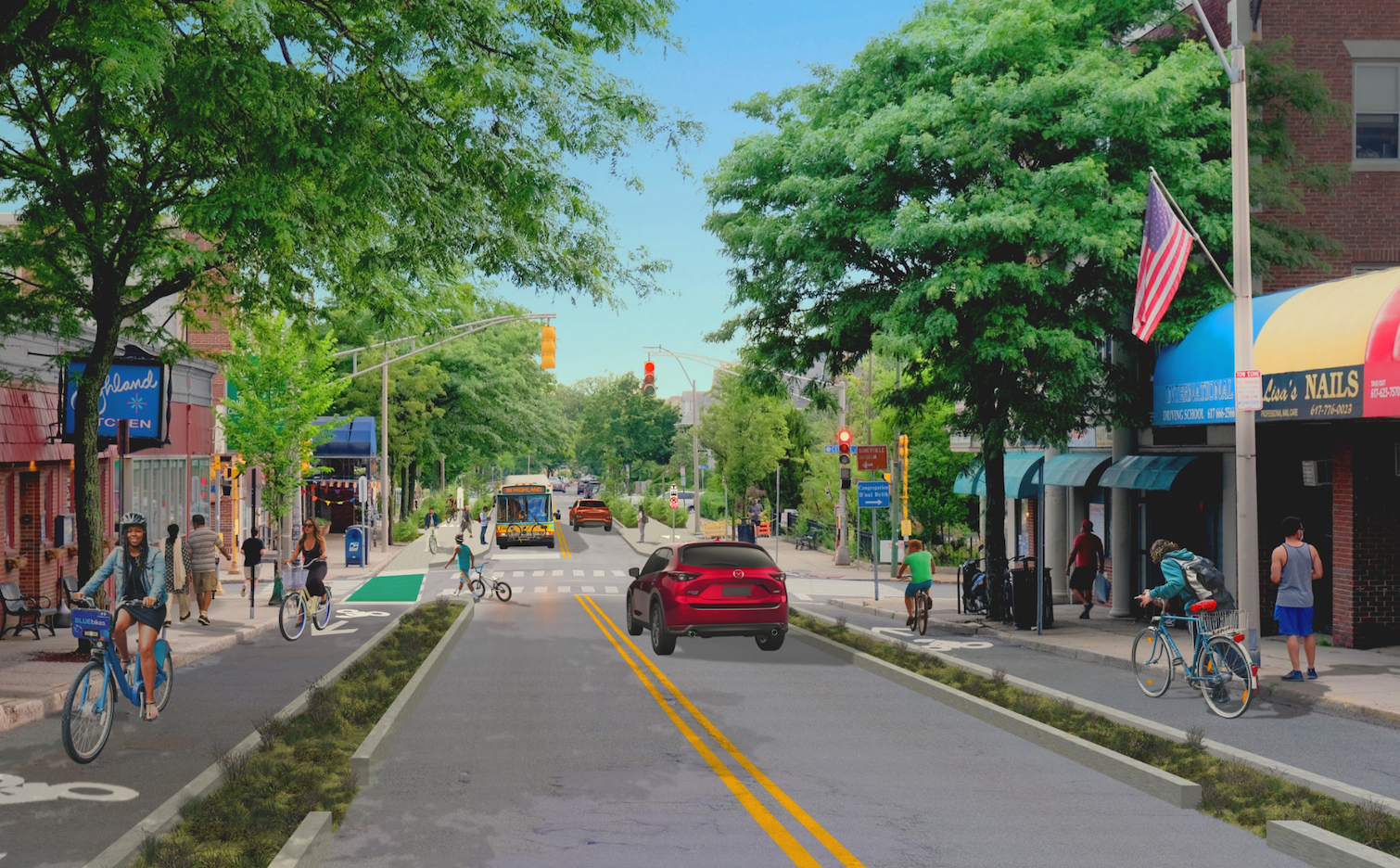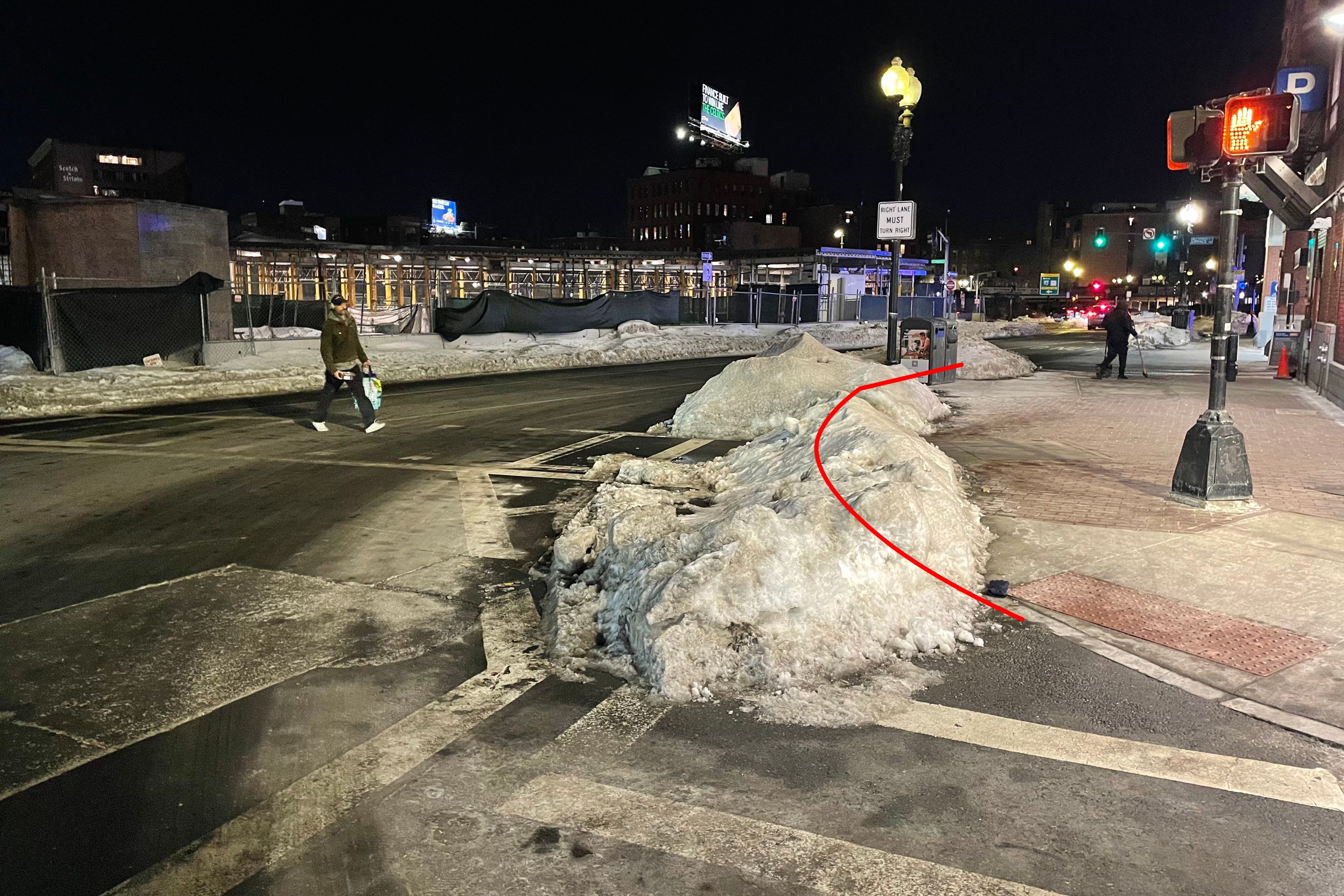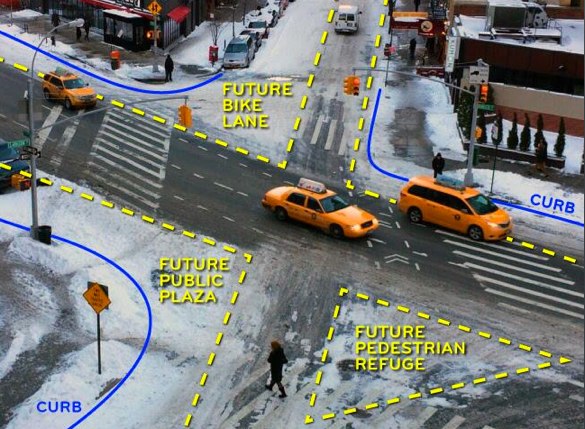In cities across the globe emerging from COVID-19, we have consistently seen a slow return to transit, and a quick return (and even growth) in private car travel. We know that pre-COVID-19, fewer than half of Boston area residents drove to work. We also know that if this ratio were to change due to the crisis -- with people mode shifting to single occupancy vehicles - all of our lives would be impacted in ways both significant and menial, and not for the better.
One prediction by researchers at Vanderbilt University estimated that if most Boston area transit users switched to driving alone in their own cars, that could translate up to 776,000 added traffic hours per day, or adding 22 minutes to each person's commute.
Along with these increased commute times, there would be more fatal car crashes, less social and economic mobility, and greater levels of pollution and particulate matter in the air. If you think this scale of mode-shift is unrealistic, we would simply point to a recent MassINC poll indicating that 44 percent of transit users expect to make fewer trips in the near future.
If the prospect of this transportation nightmare worries you, you aren’t alone. Thankfully, the city of Somerville, and many of its neighbors in the Boston Metro region, have long been on the leading edge of transportation innovation in Massachusetts. Somerville’s response to the pandemic has been swift and strong, with Shared Streets, expanded street space for outside dining, and pop-up protected bike lanes set up across the city.
But these actions are all temporary, and permanent changes are not guaranteed. Somerville has led in prioritizing buses, bicycles and pedestrians on several key streets in the past few years, and we can lead again here.
The Way Forward
It’s increasingly clear that for our cities and communities to prosper, we need to change the way we build our streets - to better design them for people, and center them on the concept of resilience.
It was in this context that Somerville Bicycle Safety was pleased to have had the chance to meet with the designers at Street Plans, where we set out to outline what we think the future of Resilient Streets should look like for our municipality.
First, we want to answer the question you are likely asking yourself: what is a resilient street?
A resilient street is a street that prioritizes the efficient movement of people; it is a street that builds redundancy into transit networks by creating multiple, equally attractive options for getting around; and it is a street that is built to manage or mitigate environmental changes that are likely on the horizon. A resilient street is a street that makes social distancing possible: for bus riders, for bike riders, for walking, sitting, and dining. It is a street that is lined with green space for recreating, shade to fight the heat island effect, and ample drainage to combat the possibility of flooding. Resilient streets do not pretend to be blind to the socio-economic history of the communities they run through - rather, they are built to help correct historic injustices by providing greater access for those with the greatest need.
A resilient street works best when it’s connected to other resilient streets, and is of the requisite length and proximity to people that it can facilitate all manner of uses: trips to the local shopping and restaurant hubs, intra-municipality travel between neighborhoods, as well as medium-to-long distance (5-8 miles) inter-municipality “traditional” commutes to Central Business Districts.
Having a high quality, affordable bikeshare network - with both classic pedal bikes and ebikes - only further increases the effectiveness of resilient streets in preventing mode shift toward single occupancy driving.
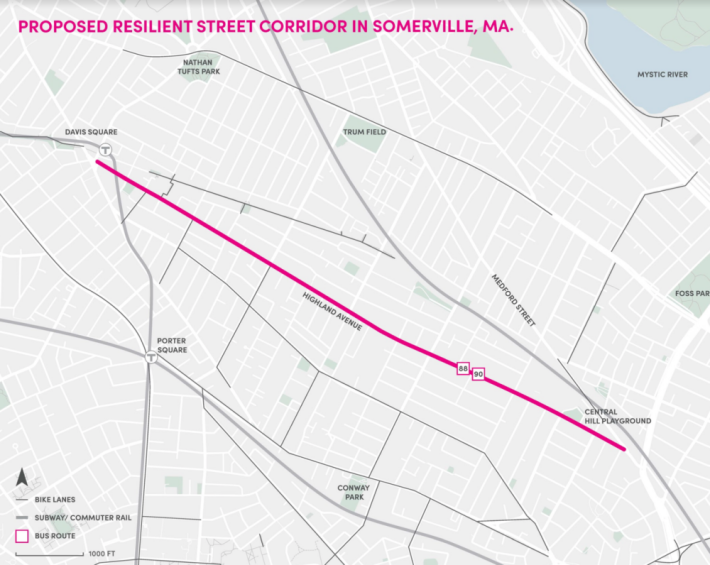
We chose to reimagine Highland Avenue, a major east-west connector, for a few reasons. The most important of which is that it is a street that closely resembles so many other streets in Somerville: it is 40 feet curb to curb, it has parking lanes on both sides of the street, and it has two popular bus lines. If we can show how Highland Avenue could be built to better accommodate all street users, we believe the same lessons could be applied much more broadly across the municipality.
Secondly, this is a long cross-town corridor connecting two multimodal transit hubs, Davis Square and Lechmere. It is densely developed with residences and retail along its length, and has many of the city’s major destinations including Somerville’s City Hall, main library, and high school.
Lastly, the timing is ideal because Somerville will be upgrading several of its busiest 40’ streets in the next few years, including Holland Street and College Avenue in 2021. Highland Avenue itself is part of the Spring Hill Sewer Separation project and will be completely rebuilt over the next few years.
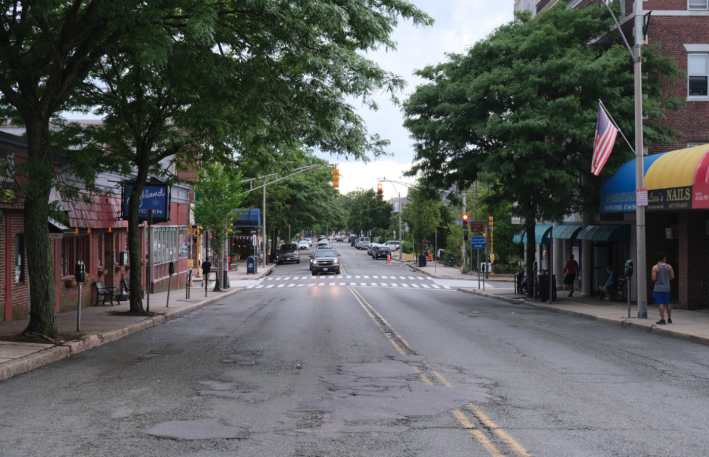
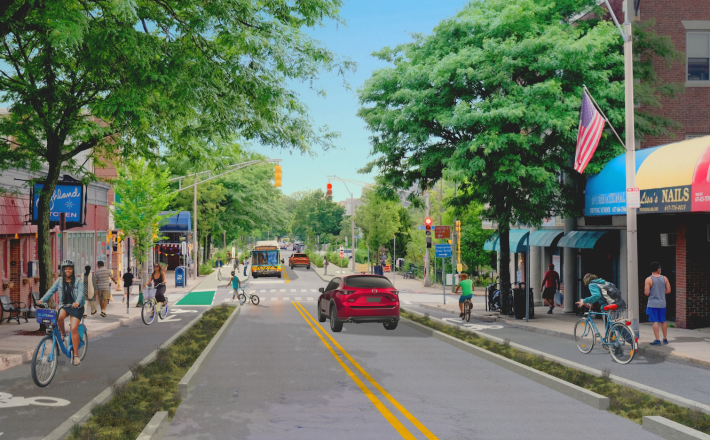
This reimagined Highland Avenue would prioritize moving people safely and easily along its length. Bus riders, including commuters, and students going to and from the high school, would have comfortable places to board and in-lane stops would cut down on the delay of buses having to pull back into car traffic. People on bicycles would feel safe using the physically separated lanes to commute to City Hall, run errands, and pick up meals from Highland’s many local restaurants. Pedestrians would have ample space to make short trips to shop and move around the neighborhood. By removing bikes and merging buses from the travel lane, even drivers would benefit from smoother and safer trips.
Our Cities Can’t Do This Alone
As we have seen, bicycles are playing a key role in the recovery of cities across the world, but the most successful bicycle policy platforms are supported beyond just the city level, and include policy adoption at the state/province, as well as the national level.
- Massachusetts would benefit from ebikes:Massachusetts is one of only seven states in the union that hasn’t clearly defined what an ebike is, thus making large scale adaptation impossible. As we’ve seen in other cities, ebikes increase the popularity and accessibility of cycling as a whole, because they appeal to a broader spectrum of the population - including seniors and people with disabilities - and encourage people to bike longer distances. This last point is particularly pertinent to communities outside the central core of Boston itself. Ebike definition language is currently being debated as part of the Transportation Bond Bill, which has to pass before the end of the year. It’s vitally important that ebike language is included in the final version that is agreed upon by both houses in the state legislature.
- The federal government needs to support better transportation policies for both cities and citizens:As part of the most recent surface transit reauthorization bill (H.R. 2) at the federal level, there has been an effort to introduce a new $2.4 billion grant program to support counties doing infrastructure work on local priorities. This is low-hanging fruit that empowers cities like Somerville by giving us the resources we need to respond to current conditions and anticipate challenges through the creation of truly resilient transportation networks.
There is also a bipartisan bill in front of Congress (H.R. 1507) that would reintroduce - and strengthen - the commuter tax benefit for biking to work, including making bikeshare memberships tax deductible. Bicycle commuter benefits have been shown to increase the number of people who choose cycling, over other modes, and are another common sense policy to prevent mode shift toward single occupancy vehicles during this perilous time.
For cities to emerge from the current crisis, we are going to need to do things differently. With the potential for significant mode-shift away from efficient, environmentally friendly transportation systems, we need to think creatively about how we are going to get people from point A to point B in ways that are consistent with our environmental, safety, and public health goals. Our streets have the space to move many more people, more safely, than they are currently doing. Let’s start there.
Take Action:
- Sign this petition and support Somerville Bicycle Safety in our effort to continue to expand safe infrastructure for people of all ages and all abilities in all neighborhoods of Somerville.
- Support the work of MassBike to define ebikes in Massachusetts
- Sign this petition by People for Bikes to support the passage of the Bicycle Commuter Act, making bike commuters eligible for pre-tax benefits.
About the authors:
Arah Schuur and George Schneeloch, both Somerville residents, founded Somerville Bicycle Safety after the failed effort to add protected bike lanes to one of the city's main streets. Somerville Bike Safety works to make bicycling safe for people of all ages and abilities, in all neighborhoods of Somerville, and can be reached at info@somervillebikesafety.org.
Thomas DeVito is the East Coast Policy Manager for Transit, Bikes, and Scooters at Lyft. Thomas was previously a community organizer, serving as Senior Director of Advocacy at Transportation Alternatives, based out of New York City.
